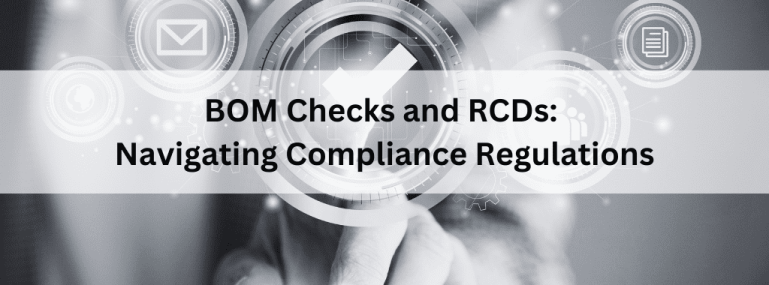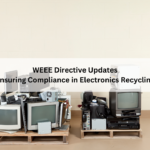Business across industries are required to comply with regulatory requirements, which ensures the safety, quality, and conformity of their products. In this blog post, we will explore the significance of compliance regulations, specifically the Bill of Materials (BOM) and Restriction of Hazardous Substances (RoHS) Compliance Declaration (RCD). These compliance measures are crucial to manufacturers since they ensure consumer and environment safety, and maintain customer loyalty.
Bill of Materials (BOM) Check: Ensuring Product Safety and Compliance
The Bill of Materials (BOM) is a comprehensive list of the components, parts, and materials required to manufacture the product. To identify restricted or hazardous substances in a BOM, it is necessary to verify the materials against relevant compliance regulations. To ensure product safety and to comply with regulatory requirements, this process is crucial.
The importance of a BOM check can be summarized as follows:
- Mitigating Health and Environmental Risks: The elimination of potentially harmful substances from a product can be accomplished by conducting a thorough BOM check as a result, environmental and health risks are mitigated.
- Complying with industry standards: Certain products are subject to compliance regulations, such as RoHS, which limit hazardous substances. By checking the BOM, manufacturers ensure that they are following regulations and standards.
- Enhancing consumer trust: As consumers become increasingly concerned about product safety and sustainability, checking the BOM of a product will demonstrate the manufacturer’s commitment to compliance, thus building consumer trust.
Compliance Declaration (RCD) for Restriction of Hazardous Substances (RoHS): Protecting Consumers and the Environment
RoHS Compliance Declarations are crucial components of compliance regulations, especially for electrical and electronic equipment. The RCD restricts the use of hazardous substances in these products, protecting consumers and the environment.
RCDs are important for several reasons:
- Ensuring product safety: Electronic products cannot use lead, mercury, cadmium, hexavalent chromium, or certain brominated flame retardants, according to the RCD. Consumer safety and health risks are reduced when manufacturers comply with the RCD.
- Promoting environmental responsibility: Electronic products can contain hazardous substances that harm the environment. RCD restrictions encourage manufacturers to adopt more sustainable practices, reducing their environmental impact.
- Meeting Market Access Requirements: The RCD has been adopted as a mandatory compliance regulation in many countries and regions. Manufacturers can ensure their products meet the requirements of international trade by obtaining the necessary certifications and declarations.
Compliance Regulations: Recent Updates and Future Trends
As compliance regulations evolve, they are aligned with international standards and address emerging concerns. The following are some recent updates and future trends to keep an eye on:
- Expanded Regulation Scope: Regulatory bodies are expanding compliance regulations to cover more industries and products. To keep up with these developments, manufacturers must keep their products up to date.
- Strict Enforcement and Verification: Compliance enforcement and verification processes are becoming increasingly important to authorities. To meet heightened scrutiny, manufacturers must provide comprehensive documentation, test reports, and evidence of compliance.
- Embracing Digital Solutions: A new generation of digital compliance solutions is emerging because of technological advancements. By using automated systems and software, BOM checks can be managed, documentation can be streamlined, and compliance transparency can be improved.
BOM checks ensure that materials and components comply with safety and regulatory requirements, while RCDs confirm compliance. ComplianceXL assists clients with these processes, ensuring product safety, meeting legal obligations, enhancing reputation, and minimizing risks. Keeping up with regulations and prioritizing compliance is essential for maintaining product quality and integrity. Get in touch with us today!!





